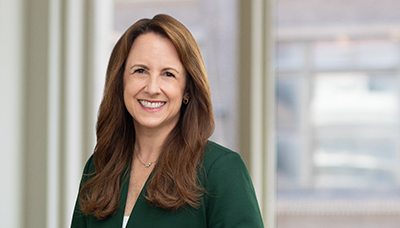Continuation of yesterday's Part 1 of "Top 10 Takeaways from ABA White Collar Crime Conference 2015." 6. Practitioners offer updated advice for settlement negotiations in corruption cases Another panel that included former DOJ FCPA chief Chuck Duross addressed strategies for negotiating settlements in corruption cases. These practitioners advised that the company should send high-ranking client representatives (including, if possible, the CEO, CCO, and/or the Head of the Audit Committee) to meetings with DOJ to show the company cares about the matter. They relayed their experiences suggesting the DOJ and SEC are looking for, among other things, contrition from the company, internal discipline of those engaging in illegal conduct, and reasons why an independent monitor is not necessary. They are also looking for a compliance plan that is tailored to the company’s business model and the jurisdictions at issue; changes over time as the business model and circumstances change; is risk-based; has sufficient resources devoted to it; and has the support of upper management. On the flip side, the panel advised that practitioners specifically address each of the nine principles for corporate charging by the DOJ, with arguments as to why each principal does not apply. The panelists also discouraged practitioners from making statements like “our stock price will drop” in an effort to mitigate/ avoid penalties. Finally, the panel advised that self-disclosure does appear to be significant; in fact, there has been no parent company level guilty plea required where self-disclosure has occurred, and the DOJ has been consistent in applying “stare decisis” in its charging decisions. 7. Increased focus on individuals extends to the healthcare fraud context The panel on developments in healthcare fraud and abuse enforcement discussed the many smaller, yet significant settlements involving pharma and device companies in 2014, and those expected to come down in 2015. The panel discussed the increased focus on individual prosecutions, highlighting the example of a recent CEO who pled guilty to misdemeanors and noting that a primary focus in these investigations appears to be the evidence that the company uncovered as to culpable individuals, and the steps the company took to see if individual culpability “crept up the corporate ladder.” The experiences of the panel appeared to reflect that False Claims Act prosecutions and investigations in the healthcare arena continue to be an extremely hot area of enforcement. 8. High-profile criminal trials offered new and evolving challenges in 2014 One of the more interesting (and always well-attended) panels was the panel addressing recent high-profile trials – including the Sexton, Scarfo and Rengam Rajaratnam cases – and lessons to be learned from them. One takeaway was that the massive amounts of discovery that are inherent nowadays in modern federal criminal trials can result in a significant burden that is borne mostly by defendants, especially those with limited financial resources. Moreover, the panelists generally agreed that of the documents seized in a large criminal investigation, usually only a very small percentage will be relevant, leading to problems locating Jencks material or useful/hot documents and requiring creative methods of compliance. Another topic of interest was the utility of keeping defense theories secret from the government as long as possible, even until the case in chief. The panel also discussed the difficulties inherent in selecting a jury in a case with large numbers of defendants, especially where those defendants are incredibly diverse in terms of background and involvement in the offense. 9. Relatively speaking, Ponzi had it pretty good In what was one of the most entertaining and insightful presentations of the conference, the Hon. Gregg J. Costa, United States Circuit Judge, United States Court of Appeals for the Fifth Circuit offered some reflections on the Stanford case. Judge Costa compared the Stanford case to the original Ponzi prosecution and revealed that while a modern day Ponzi prosecution may offer more procedural protections (including in the asset forfeiture context and the time allotted for trial preparation), defendants today can expect significant challenges with respect to discovery and will face astronomical sentences in comparison with those handed out in the olden days (including to Ponzi, who received a 5-year sentence). 10. "White collar" issues continue to evolve Finally, the agenda itself for the conference gave some insight on the types of issues that white collar practitioners find themselves facing in 2015. Panels on cybersecurity, ethics in the digital age, and cross-border government investigation complimented more traditional topics such as responding to subpoenas, demonstrating that while the legal standards and obligation practitioners face may stay somewhat constant, the external factors that complicate those standards and obligations are ever-changing. Other panels, including the panels on sanctions and export control and on environmental and healthcare enforcement, showed that practitioners always need to be thinking about other areas of the law that might impact their clients’ case, particularly where that client is a corporation facing regulation and scrutiny from a variety of government sources. As always, the conference provided a good environment for a discussion of the intersection of all of these issues, and how white collar lawyers can strengthen their practices in 2015.
Subscribe
Do you want to receive more valuable insights directly in your inbox? Visit our subscription center and let us know what you're interested in learning more about.
View Subscription Center













